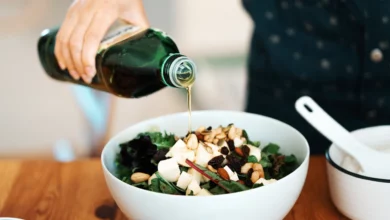I have been living in Cairo for the past two and a half years, and unsurprisingly, the combination of street food, pollution, noise, and little sleep has worn me out.
So when I came across the “Urban Cleanse” five-day program that claims to provide “a combination of tasty fresh juices, raw energy soups and shakes that are loaded with greens to boost your immune system and cleanse the liver, the blood and the digestive tract,” I decided to give it a try.
For five days, starting Sunday, I will not consume any solid food at all, abandoning my appetizing chicken filet in the freezer and locking my pack of fresh cream and salted butter in a safe before swallowing the key.
Instead, I will be immersed in a world of fresh and squeezed cucumbers, parsley and spinach, following a diet of oranges, papayas, pineapples, carrots, peppered with ginger, tamarind and celery.
Enjoying my last days of culinary freedom, I am prepare myself mentally for the quasi-fasting that lies ahead as I have promised to ignore the constant growling of my imploring stomach over the next five days.
In order to fully prepare and become acquainted with the benefits of such a cleanse before embarking on this vegetarian adventure, I met Alicia Rutherford, the young British-American woman who brought the concept to Cairo.
Alicia is a certified natural chef, accredited by Bauman College in San Francisco where she studied healing foods for modern health. She believes that “the best way to reverse an illness is by naturally cleansing and eating your way back to health.”
The juice cleanse is supposed to speed up the body’s natural detoxification process in a very short period of time.
“Some people do a water cleanse, but I usually recommend juice fasting because it provides the body with nutrient sources that are easily digested,” Alicia explains, smiling confidently. After a second, she adds: “You’d be surprised at how energized you feel while cleansing.”
According to Rutherford, the intensity of the juice fasting differs from one individual to another, depending mainly on one’s eating habits. “Someone who regularly absorbs processed foods and has unhealthy habits like smoking and drinking will experience more detoxing symptoms than those with a relatively healthy lifestyle,” she says.
At that point in the discussion I start to feel increasingly uneasy, trying to picture the consequences of the “detoxing symptoms” she mentions. Feeling my hesitation, Alicia patiently explains that headaches, runny noses, bad breath and flu-like symptoms may be experienced by some individuals, but she tries to reassure me by adding that “these are good sign that prove the body is detoxing.” I was not very reassured.
Unfortunately, it was too late to escape my impending fate. I was to become a test case for this innovative but potentially dangerous fasting regime. And my favorite lifestyle editor has required me to report religiously on my daily experiences for the edification and amusement of our readers. To be continued…




